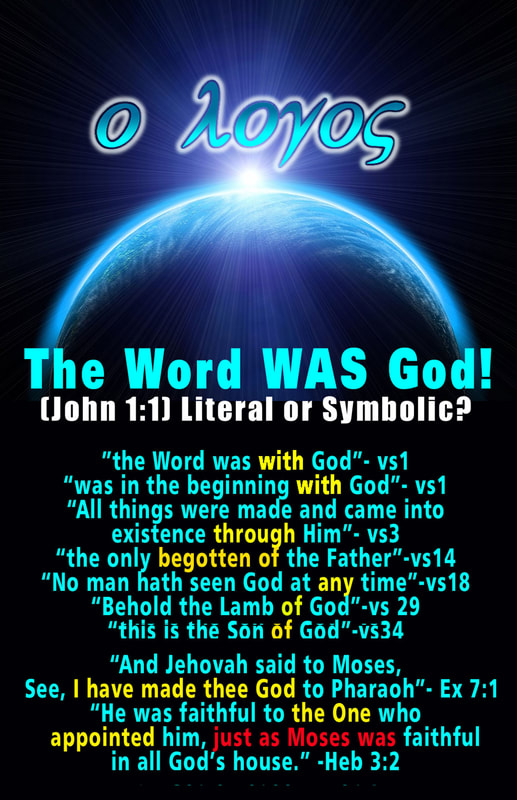tigger 2 wrote: ↑Sun Apr 09, 2023 9:17 pm
In the NT Greek, any singular nominative count noun ("house," "prophet," "woman," "lamb," "god," etc.) which does not have a definite article and which is not part of a prepositional phrase will be
given an indefinite article ("a/an") by the translator rendering it into English.
...............................................
Literal Translation of John 1:1c
Even the trinitarian Greek expert, W. E. Vine, (although, for obvious reasons, he chooses not to accept it as the proper interpretation) admits that the literal translation of John 1:1c is: “a god was the Word”. - p. 490,
An Expository Dictionary of New Testament Words, Thomas Nelson, Inc., 1983 printing.
Equally trinitarian Professor C. H. Dodd, director of the New English Bible project, also admits this is a proper literal translation:
“A possible translation [for John 1:1c] ... would be, ‘The Word was a god.’ As a word-for-word translation it cannot be faulted.” -
Technical Papers for the Bible Translator, vol. 28, Jan. 1977.
The reason Prof. Dodd rejected “a god” as the actual meaning intended by John is simply because it upset his trinitarian interpretations of John’s Gospel!
Rev. J. W. Wenham wrote in his
The Elements of New Testament Greek: “Therefore as far as grammar alone is concerned, such a sentence could be printed: θεὸς ἐστιν ὁ λόγος, which would mean either, ‘The Word is
a god’, or, ‘The Word is the god [God]’.” - p. 35, Cambridge University Press, 1965.
"In John i.1 (θεὸς ἦν ὁ λόγος), the article could not have been omitted if John had wished to designate the
λόγος as
ὁ θεὸς, because in such a connexion
θεὸς without the article would be ambiguous." -
A treatise on the grammar of New Testament Greek : regarded as a sure basis for New Testament exegesis, p. 151, G. B. Winer.
(Of course if you carefully examine the rest of this study, you will find that the grammar really shows that ‘The Word is [or “was” in John 1:1c] a god’ is what John intended.)
Trinitarian NT scholar Prof. Murray J. Harris also admits that grammatically John 1:1c may be properly translated, ‘the Word was a god,’ but his trinitarian bias makes him claim that “John’s monotheism” will not allow such an interpretation. - p. 60, Jesus as God, Baker Book House, 1992. However, his acknowledgment of the use of “god” for men at John 10:34-36 and the use of “god/gods” for angels, judges, and other men in the Hebrew OT Scriptures contradicts his above excuse for not accepting the literal translation. - p. 202, Jesus as God.
And Dr. J. D. BeDuhn in his
Truth in Translation states about John 1:1c:
“ ‘And the Word was a god.’ The preponderance of evidence from Greek grammar… supports this translation.” - p. 132, University Press of America, Inc., 2003.
Trinitarian Dr. Robert Young admits that a more literal translation of John 1:1c is “and a God[2] (i.e. a Divine Being) was the Word” - p. 54, (‘New Covenant’ section),
Young’s Concise Critical Bible Commentary, Baker Book House, 1977 printing.
And highly respected trinitarian scholar, author, and Bible translator, Dr. William Barclay wrote: “You could translate [John 1:1c], so far as the Greek goes: ‘the Word was a God’; but it seems obvious that this is so much against the whole of the rest of the New Testament that it is wrong.” - p. 205,
Ever yours, edited by C. L. Rawlins, Labarum Publ., 1985.
You see, in ancient times many of God’s servants had no qualms about using the word “god” or “gods” for godly men, kings, judges, and even angels.



